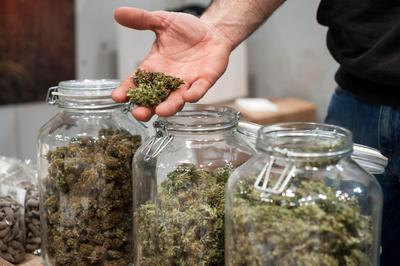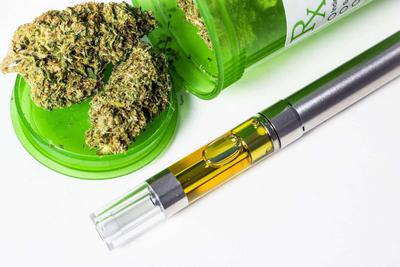MLB Drug Testing Removes THC, Adds Expanded Opiates
Major League Baseball and the MLB players' union jointly announced a new drug testing policy for major league and minor league players that brings real change to the league, beginning with spring training 2020. The updated drug policy takes a treatment-based approach instead of a program of punishment.

For Spring Training 2020, major league baseball updates drug testing panel: weed is out, while opiates are in.
Starting with spring training 2020, MLB players will be tested for opioids including fentanyl, cocaine, and synthetic tetrahydrocannabinol (THC). MLB is removing natural cannabinoids, including marijuana (THC) from its drug testing protocols and will be treating marijuana use in the same way it does alcohol.
What drug tests have MLB players undergone in prior seasons?
Since 2002, MLB players have been tested for performance-enhancing drugs upon reporting to spring training, primarily steroids and stimulants like ephedrine. The players' union agreed to non-random tests in 2006 that could be administered to players if they were reported to the Health Policy Advisory Committee (HPAC) and the committee found there was a reasonable suspicion they could be misusing prohibited substances. Previous tests included natural cannabinoids (THC) cocaine, LSD, PCP, basic opiates (heroin, codeine, morphine), stimulants such as amphetamines, and party drugs like MDMA.
The loss of Tyler Skaggs drew attention to opioid overdose, multiple drug toxicity, and the lack of expanded opiates in the existing drug test panel.
MLB and the players' union agreed to the new drug testing approach in large part because of the shocking overdose death of L.A. Angels pitcher Tyler Skaggs, who died of multiple drug toxicity July 1, 2019. Skaggs was found dead in a Dallas hotel room shortly before the team was set to start a series against the Texas Rangers. The 27-year old pitcher died after aspirating vomit, due to a toxic mixture of alcohol, fentanyl, and oxycodone in his system.
Admirably, the players' union decided to take the lead in discussing opioids with MLB shortly after Skaggs' death. Union leader Tony Clark said, "Players aren't immune to issues that affect all of us, and so the situation this year only heightened that, brought it even closer to home."
A change from penalties to treatment and help
Deputy MLB commissioner for administration and Chief Legal Officer Dan Halem wrote in a prepared statement, "It is our collective hope that this agreement will help raise public awareness on the risks and dangers of opioid medications."
Players will no longer receive harsh penalties of suspensions and heavy fines if they test positive for opioids, fentanyl, cocaine, or synthetic THC. Instead, they'll be referred to a treatment board. The new treatment board will include medical professionals, MLB representatives, and players' union representatives. They will receive a personalized treatment plan if needed. They will only face disciplinary action if they don't cooperate with their treatment plan.
Drug education is part of MLB's new drug testing program
Another part of the new drug testing plan created by MLB and the players' union is an educational program for all players on the dangers of opioid pain medication. Education will also include practical approaches to marijuana.
One of the reasons natural cannabinoids were removed from MLB's drug testing program is the increasing use of CBD products for pain relief. Major and minor league players have been using CBD, a non-intoxicating cannabinoid, and THC as remedies for pain relief and recovery for several years. While CBD should not technically show up on a THC drug test, there is so much at stake for the players and the league that it was removed anyway.
The change in treatment of THC especially impacts minor league players, because they previously risked suspension for a positive marijuana test. Synthetic cannabinoids remain on the testing list because, despite its name, it is a dangerous class of drugs that actually has nothing to do with natural marijuana.
According to players' union leader Tony Clark:
Players are overwhelmingly in favor of expanding our testing regimen to include opioids.
Drug overdoses, largely due to fentanyl and other synthetic opioids, overtook car accidents, HIV/AIDS, and gun deaths as the leading cause of accidental death in 2017.
MLB's new drug testing policy is a major change. Marijuana use will now be treated in the same way as alcohol use; just as players can enter treatment if they are misusing alcohol, with marijuana they will now have the same option. From now on, the drug tests exclude marijuana, opening the door to the use - and potential abuse - of smoking pot.
Before Tyler Skaggs' death, Major League Baseball fined and suspended players who used weed, but turned a blind eye to addictive and deadly synthetic opioids like fentanyl. In a major turnaround that will be noticed and considered by corporations all across America, players will now be tested for these expanded opiates with an eye toward treatment and support rather than penalties, and the drug testing panel will exclude marijuana.
The MLB and Player's Union should both be commended for taking a stand and actions that bring sensibility to the drug testing panels and may just prevent another tragic death like Tyler Skaggs.




